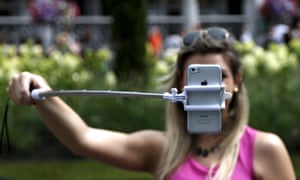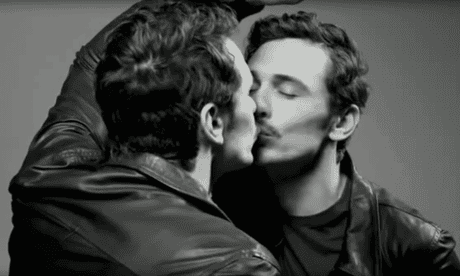Ofqual said results are still likely to be slightly higher than last year, up 2% at A-level. Photograph: Matthew Horwood/Getty Images
Teacher-assessed A-level grades, submitted by schools in England because exams have been cancelled, will have to be adjusted down by 10 percentage points, though results will still be up on last year.
The exams regulator Ofqual said a substantial number of students would receive at least one adjusted grade – usually downwards – as a result of a standardisation process, designed to ensure this year’s results are in line with those of previous years.
Ofqual said schools and colleges had submitted grades that were higher than would normally be expected, but it was not surprising because teachers had not been given an opportunity to develop a common approach to grading in advance and “naturally want to do their best for their students”.
The regulator also sought to reassure students and their teachers that despite the downward adjustments, results are still likely to be slightly higher than last year, up 1% across all grades at GCSE and 2% at A-level.
The government was forced to cancel all summer exams this year as a result of the Covid-19 pandemic, which closed schools to all but the children of key workers and vulnerable pupils. As a consequence, grades awarded this year will be based on a combination of teacher assessment, class ranking and the past performance of pupils and their schools.
Ofqual revealed that predicted grades submitted by schools and colleges were around 12 percentage points higher than last year’s results at A-level, and 9 percentage points higher at GCSE, with peaks at key grades such as 4 at GCSE which is a pass, and B at A-level which can be required for university entrance.
“Improvement on such a scale in a single year has never occurred and to allow it would significantly undermine the value of these grades for students,” the regulator said.
Ofqual also sought to allay fears that certain groups of pupils, including black, Asian and minority ethnic (BAME) students, as well as those with special educational needs and disabilities (Send) could be disadvantaged by calculated grades. Ofqual said their analysis had found no evidence of widening of gaps in attainment.
Nansi Ellis, assistant general secretary of the National Education Union, said: “It is very good news that results from this year’s extraordinary exams process are broadly comparable to previous years’ results, and that the majority of students will not be disadvantaged by this year’s process.
“A majority of teacher-calculated grades were unchanged by the Ofqual process, showing that centre assessed grades have been as robust as exam grading. This is a credit to the hard work and professionalism of teachers, who have a sound understanding of their pupils’ attainment.”
Teacher-assessed A-level grades, submitted by schools in England because exams have been cancelled, will have to be adjusted down by 10 percentage points, though results will still be up on last year.
The exams regulator Ofqual said a substantial number of students would receive at least one adjusted grade – usually downwards – as a result of a standardisation process, designed to ensure this year’s results are in line with those of previous years.
Ofqual said schools and colleges had submitted grades that were higher than would normally be expected, but it was not surprising because teachers had not been given an opportunity to develop a common approach to grading in advance and “naturally want to do their best for their students”.
The regulator also sought to reassure students and their teachers that despite the downward adjustments, results are still likely to be slightly higher than last year, up 1% across all grades at GCSE and 2% at A-level.
The government was forced to cancel all summer exams this year as a result of the Covid-19 pandemic, which closed schools to all but the children of key workers and vulnerable pupils. As a consequence, grades awarded this year will be based on a combination of teacher assessment, class ranking and the past performance of pupils and their schools.
Ofqual revealed that predicted grades submitted by schools and colleges were around 12 percentage points higher than last year’s results at A-level, and 9 percentage points higher at GCSE, with peaks at key grades such as 4 at GCSE which is a pass, and B at A-level which can be required for university entrance.
“Improvement on such a scale in a single year has never occurred and to allow it would significantly undermine the value of these grades for students,” the regulator said.
Ofqual also sought to allay fears that certain groups of pupils, including black, Asian and minority ethnic (BAME) students, as well as those with special educational needs and disabilities (Send) could be disadvantaged by calculated grades. Ofqual said their analysis had found no evidence of widening of gaps in attainment.
Nansi Ellis, assistant general secretary of the National Education Union, said: “It is very good news that results from this year’s extraordinary exams process are broadly comparable to previous years’ results, and that the majority of students will not be disadvantaged by this year’s process.
“A majority of teacher-calculated grades were unchanged by the Ofqual process, showing that centre assessed grades have been as robust as exam grading. This is a credit to the hard work and professionalism of teachers, who have a sound understanding of their pupils’ attainment.”





